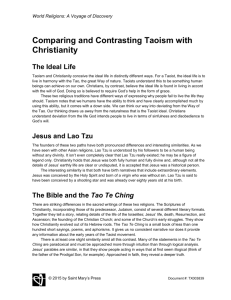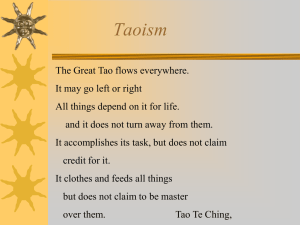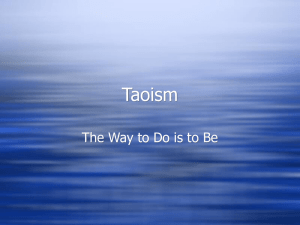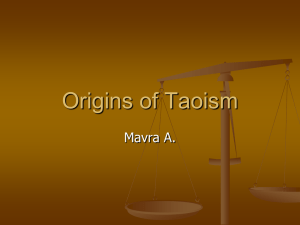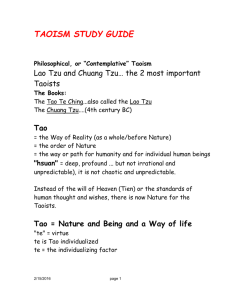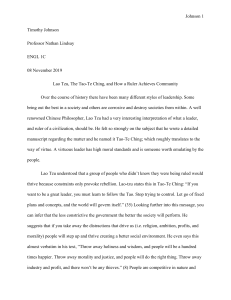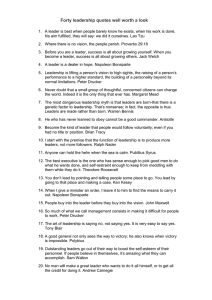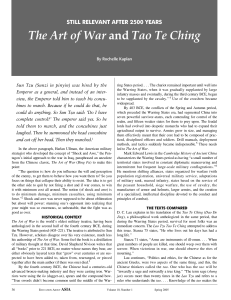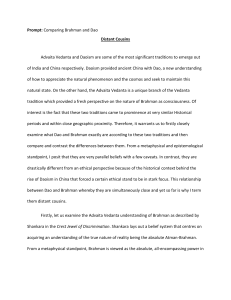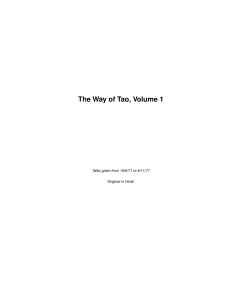Taoism (Daoism)
advertisement
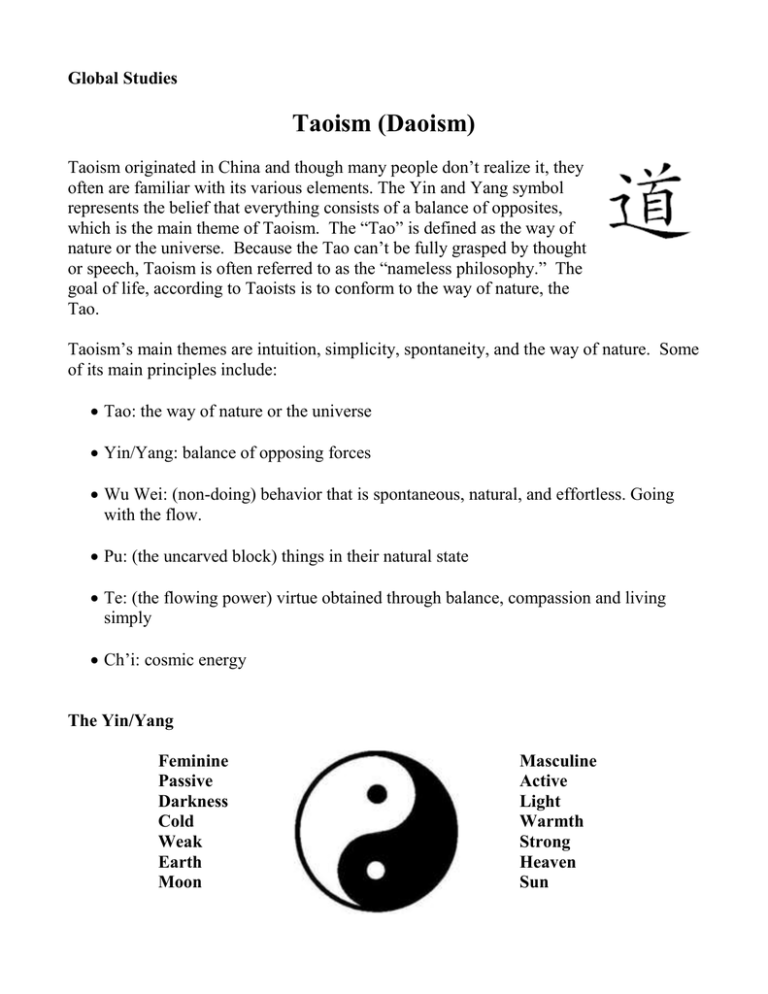
Global Studies Taoism (Daoism) Taoism originated in China and though many people don’t realize it, they often are familiar with its various elements. The Yin and Yang symbol represents the belief that everything consists of a balance of opposites, which is the main theme of Taoism. The “Tao” is defined as the way of nature or the universe. Because the Tao can’t be fully grasped by thought or speech, Taoism is often referred to as the “nameless philosophy.” The goal of life, according to Taoists is to conform to the way of nature, the Tao. Taoism’s main themes are intuition, simplicity, spontaneity, and the way of nature. Some of its main principles include: Tao: the way of nature or the universe Yin/Yang: balance of opposing forces Wu Wei: (non-doing) behavior that is spontaneous, natural, and effortless. Going with the flow. Pu: (the uncarved block) things in their natural state Te: (the flowing power) virtue obtained through balance, compassion and living simply Ch’i: cosmic energy The Yin/Yang Feminine Passive Darkness Cold Weak Earth Moon Masculine Active Light Warmth Strong Heaven Sun Lao Tzu and the Tao Te Ching (The Book of the Way and Virtue) Lao Tzu is thought to have lived between the sixth and third century BCE. He is regarded as the creator of the foundation of the Taoist philosophy. According to a Chinese legend, Lao Tzu was immaculately conceived by a shooting star and born as an eighty-two year old man. After living as a scholar of the Yin-Yang school of philosophy, Lao Tzu wanted to live the rest of his days living out a simple life in the mountains. But he was put under guard and ordered to write down his life’s wisdom. After two days, he returned to the guard with a short manuscript: the Tao Te Ching. It is believed that Lao Tzu was not the only writer of the book, but rather several teachers wrote it together. However, it remains to this day as the basic text of Taoist thought and credit is generally given to Lao Tzu. “Those who speak know nothing: Those who know are silent.” These words, I am told, Were spoken by Lao Tzu. If we are to believe that Lao Tzu, Was himself one who knew, How is it that he wrote a book, Of five thousand words? Taoist Influences on Chinese Culture Acupuncture: 2000 year-old medical procedure that is based on the concept of balancing ch’i (the vital energy that flows throughout the body) by puncturing the skin with hair-thin needles at particular points. I Ching: an ancient scripture about the yin/yang used by Taoist and Confucianists as a form of divination. Tai Chi: a set of smooth, flowing exercises used to improve or maintain health, create a sense of relaxation and keep ch’i flowing. Feng Shui: the ancient Chinese art of placement. Its goal is to achieve harmony, comfort, and balance, first in ones environment and then in one's life.
